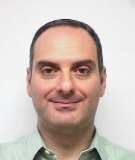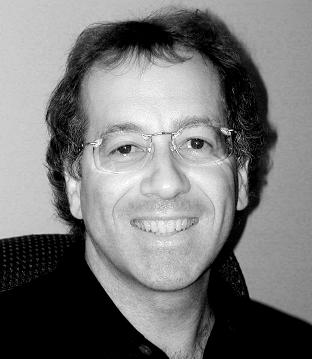|
Section
0401 |
|
|
April
2016 (Volume
66 - Issue 4) |
|
Our
objective: To increase awareness,
interest, and involvement in Section activities and quality-related subjects. Visit our web site at http://www.asqmontreal.qc.ca/ |
| 10 - Organization Members | 16 - Unemployed Member Dues | |
| 17 - Feedback/Advertising Rates | ||
1.
Next
Event
Date Wednesday, April 27, 2016 Time 6:00 PM Place PECHA
KUCHA NIGHT **************************************
Please
join us on April 27th, 2016 for our 3rd annual Pecha Kucha Night.
Experience 4
presentations
all delivered in the Japanese presentation style of Pecha
Kucha. |
2.
Ad
/
Publicité
|
||||||||||||||||||||
|
ABOUT THE EVENT Pecha Kucha, the Japanese term for the sound of conversation (“chit chat”), began in Tokyo back in 2003. Conceived by Astrid Klein and Mark Dytham, their original goal was to create a space where designers could share their ideas/passions with others. However, knowing how dangerous it is to give a designer a microphone, they decided to put some checks in place. In order to keep speakers from droning on and on, a Pecha Kucha presentation has 2 key stipulations: 1) The presentation must contain only 20 slides. 2) Each slide is on display for 20 seconds each. Because of this constraint every Pecha Kucha presentation, regardless of speaker or topic, is exactly 6 minutes and 40 seconds in length. Given this presentation style, we are able to accord time to 4 speakers on this evening, each delivering short, concise and (hopefully) entertaining presentations on 4 different Quality related subjects. Each presentation will be immediately followed by a Q&A session, in order for audience members to engage in a dialog regarding the topic presented. YOUR SPEAKERS FOR THE EVENING WILL BE: 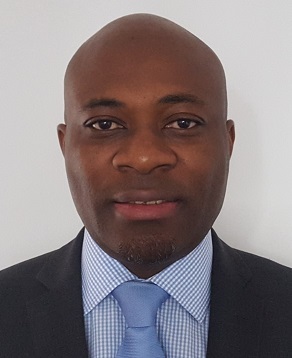 Mutair
Kadiri, Owner (Eminence Summit Inc.) Mutair
Kadiri, Owner (Eminence Summit Inc.)PRESENTATION: DMAIC - A Six Sigma Methodology SYNOPSIS: Every company wants to improve their profits and sales, reduce waste or defects and also improve productivity. Six Sigma helps to increase the overall performance of an organization. Each Six Sigma project carried out within an organization follows a defined sequence of steps and has specific value targets, for example: reduce process cycle time, reduce waste or defect, reduce costs, increase customer satisfaction, and increase profits. This presentation will provide a good overview of some of the tools used at the various stages of the DMAIC Six Sigma methodology. BIO: Mutair Kadiri is an Industrial engineer and a Quality engineer with over 15 years of experience in project management, manufacturing and production, and consulting. He is a Professional Engineer with the Professional Engineers of Ontario (PEO). He holds two master degrees; one in Industrial and Production Engineering and the other in Quality Systems Engineering. He is a senior member of the American Society for Quality. (ASQ) He is a Certified Quality Engineer (CQE) and a Certified Six Sigma Black Belt (CSSBB) with ASQ. He is the owner of the engineering consulting firm Eminence Summit Inc. 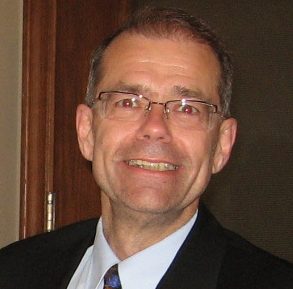 Gordon
Ayotte, Quality Manager (Amcor) Gordon
Ayotte, Quality Manager (Amcor)PRESENTATION: Quality in Career Transition SYNOPSIS: As many of us will experience more than one employer in our lifetime, being prepared for a career move is a must. During the first few months, if not weeks, is where we are the most vulnerable, and it is easy to get caught in time traps and an ineffective cycle during integration. Most of us can look back at a few of those transitions and say "I should have got more organized starting the first day". Using basic Quality Tools and a bit of common sense, a transition can be more effective and fun. After attending this presentation, you will walk away with the knowledge of what you will need for your next Career Transition from day one. BIO: Gordon Ayotte graduated in 1985 with a Bachelors in Chemical Engineering. He holds 3 certifications from the American Society for Quality: Certified Quality Engineer (CQE), Certified Manager of Quality and Organizational Excellence (CMQ/OE) and certified Six Sigma Black Belt (CSSBB), as well as Project Manager Professional (PMP) from PMI. He has worked with senior management in various industries within Canada, US, Mexico and Asia, in the pursuit of operational excellence by establishing a line of sight from the Business Plan to the customer and identifying key control points and triggers. He has dealt with team dynamics, resistance to change and challenging the status quo by applying Quality and Continuous Improvement Tools & Techniques. 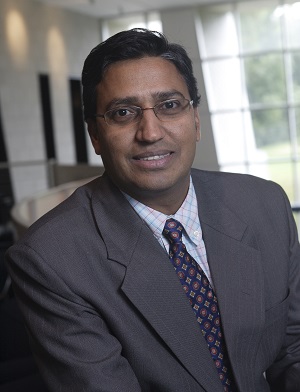 Rajesh
Kumar Tyagi,
Entrepreneur-In-Residence (Kentrus Capital) Rajesh
Kumar Tyagi,
Entrepreneur-In-Residence (Kentrus Capital)PRESENTATION: Improving Service Experience SYNOPSIS: Improved service experience leads to higher customer retention and higher profits. However, it requires an understanding of the service delivery system and both front-end and back-end business processes. Various tools and methods that can be used to improve service experience will be presented during this presentation. BIO: Dr. Rajesh Kumar Tyagi is a senior member of the ASQ and serves as an Entrepreneur-In-Residence at Kentrus Capital. He has taught at HEC Montréal, Kellogg School of Management, Northwestern University and at College of Commerce, DePaul University. He is the co-author of "Six Sigma for Transactions and Service" (2005) and "A Complete and Balanced Service Scorecard: Creating Value Through Sustained Performance Improvement" (2008). Before moving to Montreal in 2008, Dr. Tyagi co-founded a biomedical device manufacturing company in Singapore. He has organized numerous round table discussions on the topic of India-Canada relations. He obtained his PhD in Chemical Engineering at the University of Ottawa, and his MBA from The Kellogg School of Management, Northwestern University. 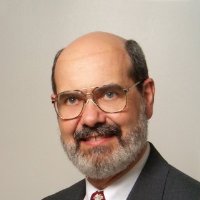 David
Tozer, President (Qualitiqua) David
Tozer, President (Qualitiqua)PRESENTATION: Some Ways of Assessing Risk SYNOPSIS: The new version of ISO 9001 requires risk be used to manage the quality system. At the present time, there appears to be little guidance on how to assess risk. Risk can be viewed from a financial or statistical point of view. An overview on assessing risk from these two points of view and some suggestions on calculating risk using standard quality tools will be presented. BIO: Dr. David Tozer earned a Ph. D. in physics at the University of Waterloo. He then worked in the quality field for many years in the pharmaceutical, defence, aerospace, medical, manufacturing, and software industries. In industry, Dr. Tozer successfully led teams of people to improve their organizations using the Six Sigma methodology. He is an ASQ Certified Quality Engineer (CQE) and Certified Six Sigma Black Belt (CSSBB), and teaches quality courses for the ASQ and a joint ASQ McGill University program. Dr. Tozer trained over four hundred people in various topics in the quality field. *****************************************
Bring
your business cards and be ready to
network. To
register for any event or for more information on events please
contact:
Dr. David Tozer  E-mail: event@asqmontreal.qc.ca 3. Upcoming Section Events
Please join us
for the
following upcoming events of the Montreal Section 401 Chapter: Wednesday,
September 28, 2016 - Operational
Excellence in Montreal The
April event
will
be held at the Sheraton Montreal Airport Hotel. Watch
the Newsletter and our web site for further details. 4. The Editor's Corner
On March 29, 2016, as I was getting ready to prepare dinner, I learned of another plane crash. If you have read some of my past musings, you'll know that I am hyper-sensitive to these specific kinds of accidents. In this one, a Mitsubishi MU2B carrying 5 passengers and 2 crew, crashed just short of the airport runway in Iles-de-la-Madeleine, Quebec. What made the story extra newsworthy was the fact that one of the passengers killed was former Federal MP (Minister of Parliament) Jean Lapierre; the other 4 passengers were all members of his family, who were all traveling back home for the funeral of Lapierre's father who had recently past away. This was already tragic enough. I then learned the next day that the co-pilot of the airplane was a former employee of a company where I had worked for over six years! I had left in July 2013 to pursue a new job opportunity, and he began working there less than 2 months later as a Procurement Strategist. He eventually left the company as well, to pursue his dream of becoming a pilot. A dream which he achieved, however short the career turned out to be. Unfair indeed.  So I came very close to knowing Fabrice Labourel, and even though I didn't, I now felt even worse as I knew many former work colleagues and friends who did know and work with him, and who were now dealing with this loss on a greater level than I was. I also started feeling another sense of unfairness, this one towards the media who were concentrating their coverage on the Lapierre family, with little to sometimes no mention of the pilot (Pascal Gosselin) and the co-pilot. So I decided that it might be a good idea to reach out to my former colleagues and colleagues of Fabrice Labourel, and have them submit remembrances and testimonials about him which I could then publish here. Perhaps by reading these writings, they may give some consolation to his grieving family. And with that, I turn over this Editor's Corner to a few of Fabrice's ex-work colleagues from Rolls-Royce Canada Energy (now Siemens), for their remembrances of a QUALITY individual. *******************************************************
I feel blessed to have had the opportunity to know you as a friend, as a colleague, and also to see you as a wonderful father for your son and husband for your wife. You were always an inspiration for us and a positive person who gave hope to people and made life better looking! We are going to miss you a lot. May you rest in peace. -Cristina Curcenu, Supplier Quality Specialist I always enjoyed dealing with Fabrice. He was always polite, always professional; qualities that are becoming increasingly rare. It surprised me when he decided to leave his job at Siemens to pursue a career in aviation, but you could see that he had a passion for flying. When you are an older worker like I am, the idea of walking away from a good job in a major company is practically unthinkable, and I admired him for following his dream. I only wish things had turned out well for him, and I offer my sincere condolences to his family. Rest in peace, Fabrice. You were a good man. -Clive Moody, Operational Buyer Cher Fabrice, tu as été un collègue de travail extraordinaire. Je me souviens dans ta dernière année avec nous, tu entrais tôt le matin, avant les autres. Tu passais par mon bureau pour notre discussion matinale. Nous avons tellement discuté de ton enfant qui arrivait bientôt, du même enfant qui était enfin arrivé, tes yeux brillants...Tu me parlais aussi secrètement de tes cours de vols, tes expériences, tes projets. Tu m’as demandé conseil pour partir à ton compte, nous en avons beaucoup discuté, tu as beaucoup réfléchi et à la fin mon conseil était: "vie ta passion Fabrice". Repose en paix, tes yeux brillent toujours. -Terrence Double, Procurement Administrator I worked closely with Fabrice for nearly 2 years, and I know he was most happiest when he was flying until the arrival of his son. He left a job he enjoyed to pursue his passion in life, and that is not something too many people get to do in life. He will be missed by all of his colleagues here, and all of his friends. My heart goes out to his wife and son, and I hope they will eventually find joy in life. -Michael Munn, Material Requirement Planning Controller *******************************************************
Any feedback? Click on the link in the bottom right corner of this section and let me know. Thanks. |
|||||||||||||||||||||
5.
A Word
from
your Section Chair
Believe it or not, this year’s spring was the earliest spring since 1896. Indeed, last March 20th at precisely 00:30 was the vernal equinox, which defines the beginning of the spring season. Given the current weather at the moment of writing, it certainly does not that feel like we are having an early spring this year. When we think about spring, blooming flower bulbs and warm sun rays come to mind. For astronomers, the March equinox is taken to be the first day of spring. According to Wikipedia, “Swedish meteorologists define the beginning of spring as the first occasion on which the average daytime temperature exceeds zero degrees Celsius for seven consecutive days, thus the date varies with latitude and elevation”. The fact that some words mean different things to different people can lead to misunderstandings. In our field, we know that misunderstandings can cause poor quality. This is why I believe in the importance of giving the utmost attention to operational definitions of quality features. In many cases, one does not need to dig very deep to find flaws, incompleteness, ambiguities – and at times contradictions – within definitions of conformance/non-conformance to quality characteristics. Here I use quality characteristic in its inclusive sense to mean process parameter, final product dimension, service feature, etc. It is always better to identify deficiencies in operational definitions sooner than later. When we find them, it is our duty to bring up the issue to all stakeholders. And at times, this means breaking through paradigms and shaking the status quo. Always a favourite of quality professionals. |
|||||||||||||||||||||
6.
Had
You Come
to the
Last Event
By Eric
Hosking, Senior Fellow of Quality at PWC, BApSc in Mech Eng, MBA, CQE,
CSSBB
and CQA 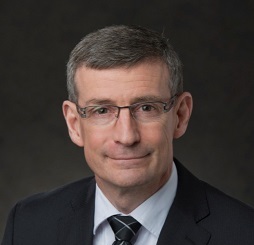 Had you come . . . Registrars Night Had
you come to our last event, you would have been both informed and
entertained by a panel discussion comprising of moderator Michael
Bournazian (ASQ Montreal Section 401 Executive Team), and
representatives of three of the largest registrars who are active in
Montreal:
1) Michel Guay from Intertek 2) Chantale Farley from NQA Canada 3) George Azedo from SAI Global  The panel answered question ranging from "What reaction are you seeing to the new ISO 9001 revision from your ISO9001 registered clients?" to "What kind of social media presence does your company currently have?" (see list of questions/topics below) In some cases, only one of the three guests was asked to answer and in some all three responded. Questions from the audience were also covered toward the end of the panel discussion.  The vast majority of the large audience left feeling that the discussion met their expectations, providing insights from the panelists across the broad spectrum of issues directed to them by the moderator. Most participants remained long after the closure of the panel discussion to network and to address further questions to the panelists.  QUESTIONS
& TOPICS COVERED
1) The latest revision of the ISO 9001 standard (2015) was released in September 2015. What kind of reactions/activity are you seeing from your ISO 9001 registered companies with regards to this new revision? 2) The new AS 9100 will be coming in 2016. Are you currently sensing an urgency around this new revision or not yet? 3) Can you give us some background on the TS 16949 standard for the automotive industry? 4) We commonly hear about ISO 9001, AS 9100, ISO 14001, TS 16949, ISO 13485. What are some industry standards available that the average quality professional may not be aware? 5) How do you commonly determine the number of days for an audit, and the number of auditors that will conduct the audit? 6) How do you handle pre-assessment audits? Do you recommend them? 7) What are some common pitfalls/mistakes that companies make during initial registration/certification process? What about during surveillance assessments? 8) What would you encourage your customers to do more of/better, with regards to obtaining/maintaining their certifications? 9) What is some common feedback that your get from your customers regarding your services, both positive (“keep doing this”) and negative (“you need to improve/change this”)? 10) What kind of a social media presence does your company currently have (LinkedIn, Facebook, Twitter)? |
|||||||||||||||||||||
7. Voice Of The
Customer
The outcome and recommendations from that call will be used in the June planning session that the section executive will use to layout next year's conferences and events.
The five points raised were:
1) Re-examine the value proposition of the membership model 2) Benchmark PMI 3) Benchmark BIC sections 4) Action teams for low satisfaction customer segments 5) New product and service offerings.
Give
me your feedback by e-mail
8.
The Interview Corner
DISCOVERING ASQ WITH BRENDA FISK
Look at ASQ from inside Many people who are pursuing ASQ certifications take Bodies of Knowledge or/and Certification Exams as something for granted, something which is always up to date, something that always existed before and which will always exist after. I myself have never completely understood where all those remarkably clear and unambiguous libraries of materials came from and who created them and maintains them. Today, we will try and answer some of those questions by interviewing a very interesting and knowledgeable person - Brenda Fisk. Brenda is an extremely experienced Project Management Office Specialist and Quality Expert who contributed a great deal to the development of American Society for Quality, continuously promoting Quality Culture, successfully developing and implementing Quality Principles and Standards into a variety of industries and services. 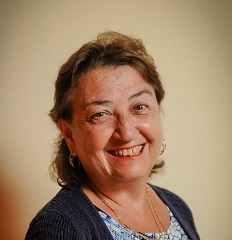 KOSTYA: Could you please tell our readers about yourself? BRENDA: I was born and bred in Montreal. I after I turned 18, I moved to Toronto and lived there for 30 years. I moved to Brockville in 2005 and that is where I am living now. I attended Chambly County High School in St. Lambert, Quebec and graduated in 1969. I completed a two year diploma course at McGill University to teach physical education to elementary school children. Instead of pursuing a teaching career, I started a job in the Electrical Engineering Department at McGill University. One of the professors invited me to help him type set a book he was writing on electrical engineering. That is when I was introduced to computers—actually to an IBM composer. My parents had already moved to Toronto because of the FLQ crisis in Quebec and my Dad encouraged me to move to Toronto where I could earn more money. Then I worked as a teletype operator at Commercial Union Assurance. We also prepared the policy face pages using a programmable Frieden Flexowriter. My next job was as a procedure writer for Canada Permanent and over the course of the next 10 years I progressed through the ranks of a business systems analyst, systems analyst and became a project manager. At that point, Canada Permanent was taken over by Canada Trust and so my position changed. I applied and was accepted into a testing consultant for CIBC. I stayed there for several years. An opportunity presented itself to work as a quality specialist in a client server environment at Royal Trust Group Benefit. From there I took a job as a Project Manager at the Dominion of Canada General Insurance Company. I then realized I could launch into a consulting role and did just that in 1994. Since then I have worked for CIBC, American Express as a Software Quality Assurance Specialist. KOSTYA: May I ask, when did you decide to move into Software Quality? When did you become interested in it? BRENDA: Actually, right from the beginning. KOSTYA: And what was the main reason for this interest? BRENDA: I was working for Commercial Union Assurance as a teletype operator. We also prepared the policy face pages using a programmable Frieden Flexowriter machine. It prepared 8 track paper tape; I realized that I could prepare templates of the working for the policy face pages which would minimize the about of typing I had to do. I programmed the paper tape template to type the standard wording and stop at the location where the insured’s name, date of birth and so on needed to be added. It was very easy for me to run the template through the machine, insert the specific details and create a tailored paper tape for that specific policy. That way, if I did make another mistake in the person’s details, I could run the policy specific tape through the machine, to where the mistake was made and replace the erroneous details with the proper details. It speeded up the policy face page preparation tremendously. When the Sperry Rand cassette tape machine was introduced, we converted the paper tape system to these new and early word processing machines. The goal was to prepare the policy face pages as quickly as we could. It worked! The Friden Flexowriter was a teleprinter, a heavy-duty electric typewriter capable of being driven not only by a human typing, but also automatically by several methods, including direct attachment to a computer and by use of paper tape. KOSTYA: Is it correct to say that you have been dealing with the quality of software through your whole work experience? BRENDA: Yes. KOSTYA: When did you become interested in ASQ certifications? Did you try to get certified by organizations other than ASQ? BRENDA: I understood that it would be good to have certifications, however I did not do so early on. I wrote the Certified Quality Improvement Associate exam in 2007, Certified Quality Process Associate in 2008, Certified Quality Auditor in 2009, Certified Software Quality Engineer in 2013 and Certified Quality Technician in 2014. KOSTYA: Very impressive. Did you obtain any other certifications? BRENDA: Yes. When I started out in 1972, it was the era when women were supposed to stay in the workforce for a short period of time; get married, have babies and carry on like that. I was talking to one of the managers in my department about becoming a Certified Accountant. He said it would take such a long time and I would not have enough energy to finish that. Instead, he suggested I take certificate programs offered through the various Toronto Universities. I chose Ryerson Polytechnic University and tackled some of the certificate programs (6 courses per certificate). In a few years, I completed the Business Administration certificate, Finance and Accounting Certificate and Business Computer and Programming certificate. These university accredited courses were also recognized by some industry associations. So I applied for certification through the Trust Companies Institute, the Canadian Bankers Association and then I completed the Canadian Securities Course. By then Ryerson started to offer degree programs to part-time students. I consolidated my studies and put the credits towards a Bachelor Degree in Commerce. I graduated from Ryerson University in 2002. KOSTYA: Fantastic. Can you tell us what was your role in American Society for Quality? BRENDA: I was at the first ASQ meeting in 1995 or so while I was still working at CIBC. The meeting was around the corner at a Holiday Inn off the 401. It was easy for me to go to the meeting and I was absolutely amazed by the number of people involved in quality. I was invited to be a secretary for the conference that the Toronto Section held every spring. Working up the ranks through ASQ Section; I became the Treasurer, Membership Chair. After my two year term as Chair for the Toronto Section, I took on the role as Deputy Regional Director for South Eastern Ontario. In 2002 I became ASQ Canada Director for six years. One is only allowed to be in that position for a maximum of 3 two-year terms. By then I had moved to Brockville and I am now servicing as the Deputy Regional Director for Eastern Ontario covering the two sections in Montreal (401 and 404) and the one section in Ottawa (407). I also serviced the Society as the Treasurer of the Software Division for 5 years. I am still participating in the Software Division’s Management Executive team. KOSTYA: May I ask you who was working on Body of Knowledge (BoK) for Certification programs? BRENDA: The whole process is administered from the Headquarters in Milwaukee, Wisconsin. They pull the BOK together. There are a number of meetings; they are constantly reviewing the exams. There is the whole process behind the creation of BOK. Members are invited to Milwaukee and spend their weekends developing questions. Then they review these questions in terms of whether they are appropriate and whether they would find the answer in BOK for that particular certification. After, they test the exam and do statistical analysis on each of the writings of the exam. ASQ certification is a formal recognition by ASQ that an individual has demonstrated a proficiency within, and comprehension of, a specific body of knowledge. Nearly 180,000 certifications have been issued to dedicated professionals worldwide. (http://asq.org/cert) KOSTYA: I was not aware on just how much work is done on BOKs and exam preparations for certification programs. BRENDA: Yes, it is a huge process. There are eighteen different certifications and they follow the process for each one. ASQ is constantly looking for new approaches that are being developed in the field. For example, Linda Westfall is updating the textbook for the Certified Software Quality Engineer (refer to http://asq.org/quality-press/display-item/?item=H1323). I am actually working on the committee that is helping to review the text. Then Headquarters will publish though the ASQ Quality Press. I am not sure of the scheduled release date for the 2nd edition of the Certified Software Quality Engineer text. KOSTYA: Do you believe that obtaining ASQ certification is quite necessary for people who are dealing with the quality of mission-critical software or quality of technology products such as airplane engines? Would you trust people whose skills and knowledge are not certified by ASQ? BRENDA: Well, ASQ is the primary source of quality initiatives as far as I am concerned. There are many others that are specific to each industry. I would recommend that anyone interested in becoming certified do the research within their own industry and find the most appropriate certification for their area of interest. KOSTYA: Such as the Software Engineering Institute? BRENDA: Yes. They establish standards and processes as well. For example, there is the Quality Assurance Institute in Florida that deals with testing certifications; there is Project Management Institute that has a certification process for Project Managers. They all complement each other because they are looking at specific areas where people should have that knowledge in this kind of industry or this kind of position. Having a certificate helps; following processes and institutionalizing them within the organization is more important than simply having a certificate. If you do not apply the knowledge, the certificate will not give you anything. KOSTYA: Can we say that the preparation and certification gives a person fundamental knowledge to be able to understand and to implement results of work of all those institutes? BRENDA: Yes, we can say that. KOSTYA: Would you recommend people who work in Software Quality to pursue CSQE certification? BRENDA: Yes, absolutely. KOSTYA: How would you recommend preparing for the exam? BRENDA: In the Handbook for the Certified Software Quality Engineer, there are examples of exam questions. You can easily go through those exams and judge your preparedness against these exams. The Quality Council of Indiana has good primers for many ASQ certifications. The Primers have sample exam questions and you can purchase books with the detailed answers to those sample questions. They are another excellent source to assess your skill against the specific book of knowledge. The Westfall Team has a sample exam for the CSQE as well. Once you go through all those exams, you will know where your lack of knowledge is so that you can brush up on the theory in the book of knowledge. These sources provide you with the theory, however this is nothing like gaining on-the-job experience. You really need the experience as well as the theory before you are fully prepared for any certification exam. KOSTYA: Do you have favorite topics of CSQE BOK that you consider the most important ones? BRENDA: They are all important. KOSTYA: Would you add any new topics to the Body of Knowledge? BRENDA: No. KOSTYA: Can you give any examples on how the knowledge of Software Quality Engineering can help to perform the duties of, say, a SQA Manager? BRENDA: It would provide you with the knowledge of some processes which implement industry-wide best practices and, if your organization so chooses, you will implement those practices and you will ensure that the quality of your software will improve. KOSTYA: So basically it was helping you all the time. BRENDA: Yes. KOSTYA: Was it appreciated by your employers? BRENDA: Yes, I think it was appreciated by my employers. Once when I came back from the World Conference on Quality and Improvement, a manager at CIBC said she would never let me go back to another conference. I thought to myself "it was my money I was spending; I was not using CIBC money and to go to the conference, I was taking my own time". I asked her why she was thinking that way and she responded that every time I come back from one of these conferences, I would absolutely be glowing quality. I realized that she truly appreciated the fact that I was investing in my own career development and simply teasing me about how truly excellent these sorts of conferences are for people involved in quality. KOSTYA: Thank you very much for your valuable time and invaluable experience you shared with us. BRENDA: I was glad to share my experience with your audience. |
|||||||||||||||||||||
9.
Welcome
to our New Members
MARCH
2016
Lila Beddar Amitava Bhattacharjee Christopher F. Chin Martha Kahane-Mercure Nader Tashakorinia Audrey Trecasse |
|||||||||||||||||||||
10.
Organization
Members
ASQ Montreal Section thanks our Organization Members: |
|||||||||||||||||||||
11.
Other
ASQ
Events
|
|||||||||||||||||||||
12. ASQ NewsApril
Member Gift Bundle: Systemic Process Improvement Call
for Volunteers: New Newsletter Templates
|
|||||||||||||||||||||
13.
ASQ
Montreal Section Education Program 2016
By
Dr. David
Tozer,
Ph.D., ASQ CQE and SSBB, Education & Audit Chair Having ASQ certification gives you an edge in the market and can significantly increase your income. ASQ Certification often leads to higher paying employment. The money invested in education and certification increases chances of finding employment quickly in the down sizing environment we live in. People who take the section sponsored refresher courses, and spend at least twice as much time as spent in the classroom on self study, have an 80%, or better, chance of passing the examination on the first attempt. Certified Quality Engineer Topics include: quality concepts, cost of quality, human resources, team formation and group dynamics, inspection, metrology, sampling, reliability, quality standards, quality audit, statistics, design of experiments, process improvement, liability, and modern management methods for improving quality. Certified Six Sigma Black Belt Topics include: quality concepts, cost of quality, enterprise wide deployment, business process management, project management, team formation and group dynamics, define, measure, analyze, improve, control, lean enterprise, statistics, design of experiments, and design for six sigma. Certified Six Sigma Green Belt Topics include: quality concepts, cost of quality, enterprise wide deployment, business process management, project management, team formation and group dynamics, define, measure, analyze, improve, control, and statistics. Certified Manager of Quality/Organizational Excellence Topics include: quality concepts, quality planning, customer focus, quality standards, project management, cost of quality, team formation and group dynamics, human resources and improvement.
Certified
Quality Auditor Topics
include: quality concepts,
team
formation and group dynamics, management responsibility, audit
objectives, audit preparation, audit conduct, audit reporting,
sampling, and basic statistics.
Certified Quality Inspector Topics include: quality concepts, team formation and group dynamics, geometry, metrology, reading drawings, mechanical processes, statistical process control, inspection, and sampling. Calendar and Registration Form Questions? In house courses, etc.: Dr. David Tozer: (514) 694-2830, education@asqmontreal.qc.ca
|
|||||||||||||||||||||
14.
Executive
Committee Meetings & Officers
Section Executive
Committee
(Leadership Team) Meetings are held at different locations, starting at
6 PM. The next regular meeting is tentatively scheduled for: May
4, 2016 Consult the List of Your Executive
for
2016 here |
|||||||||||||||||||||
15. RecertificationIs
Your Recertification Due?
Look at your wallet card to see when your present certification is due to expire. If it says December 31, 2015 you should contact ASQ by phone at 1-800-248-1946 and explain your situation to them because your certification has lapsed and you are no longer certified. If your wallet card states June 2016 you have until December 31, 2016 to get your journal to me. Why so long? Because you have an expiration date of June 20, 2016 plus or minus six months. To assist you with documenting your Recertification Units (RU) please use the Electronic Recertification Journal, or a paper equivalent, to document your claims. Please also complete the "Documentation Required" log for each section of point that you are claiming and attach all of the relevant evidence thereto. Journals with just the "ASQ Recertification Journal Application" page completed and nothing else will not be accepted. Maybe you’ve decided not to recertify because (a) you are unemployed, (b) no longer in the quality field or perhaps, (c ) your employer no longer will pay for it? Think about this, your certification belongs to you and no one else. Your name is on it and no one else’s. It is portable and you can bring the recognition to your next company. Remember how hard you had to study for it? If you let it lapse you must rewrite the exam. Do you know where you will be employed in a year or so? Well congratulations if you do because most of us don’t and it could come in handy then, it sure won’t hinder you to retain it. The cost at $69 USD to renew one certification is much less than it would be to rewrite. If you are unemployed then contact ASQ directly at 1-800-248-1946. Ask for “Recertification” then explain your unemployment situation to them. You may be able to have your due date extended. But at $69.00 that is not really that much if it will help land your next job? If you are a member of Section 0401, Montreal then contact me (Norman) at certification@asqmontreal.qc.ca to find out where to send your journal. If you are NOT a member of section 401 then contact ASQ directly at 1-800-248-1946. Please DO NOT EMAIL your journal to me. Use Canada Post or equivalent. 16.
Unemployed Member Dues
Unemployed ASQ members receive a discount on their membership dues based on consecutive years of membership.
Eligibility Criteria
Benefits
NOTE: The following links require that you be logged into your account before you try to activate them. Download the ASQ Unemployment Program
Application
PDF (105 KB) |
|||||||||||||||||||||
17.
Feedback
Please send us your comments about the ASQ Montreal Section 0401 E-Newsletter (topics, layout, length, etc.). Do you want to contribute an article (English or French) or a good idea? Contact us by e-mail. |
|
||||||||||||||||||||
Pass
it on
We invite you to forward this Newsletter to friends and colleagues who may be interested. |
|||||||||||||||||||||
|
The
ASQ
Montreal
Section 0401 Newsletter is prepared by and published for its members. How to
Opt Out. This
e-mail
is being sent in the course of normal Montreal Section
business
to the e-mail address of record. We are not responsible for forwarded
e-mails. If you no longer wish to receive e-mail communications from
the Montreal Section (your section) of ASQ, please visit your ASQ
account to unsubscribe or
reply to this message, indicating Opt
Out in the
e-mail body
and in the title. |
|||||||||||||||||||||


